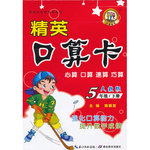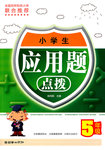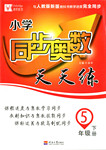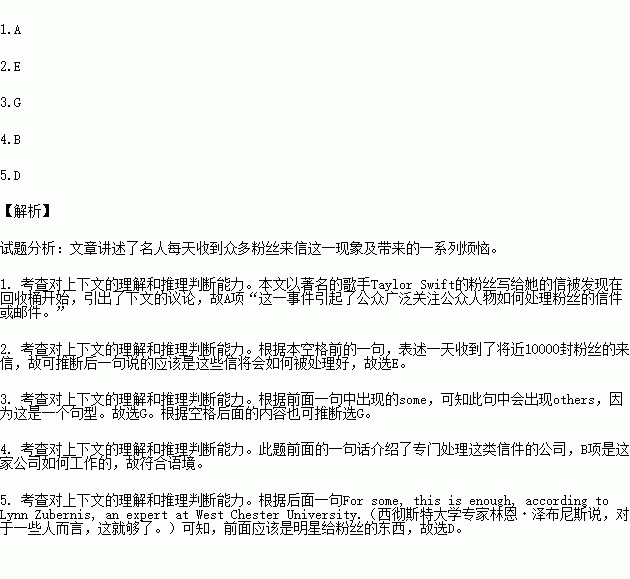题目内容
根据短文内容,从短文后的选项中选出能填入空白处的最佳选项,选项中有两项为多余选项。
Lost in the Post
How would you feel if the letter you penned carefully and posted to your favorite star ended up in the recycling bin? That's where unopened fan mail sent to singer Taylor Swift was found in Nashville. ___1.___
Swift’s management said it was an accident, but dealing with piles of letters is a burden for most public figures. According to the BBC reporter Jon Kelly, at the height of his fame, Johnny Depp was said to receive up to 10,000 letters a week. ___2.___
The dawn of the digital age in which public figures with a Twitter account can be messaged directly has made the process easier. The White House says it deals with 20,000 messages addressed to President Barack Obama each day.
Some celebrities don’t want letters. In 2008, Beatles drummer Ringo Starr said that he would throw them out because he was too busy. ___3._ Robert Pattinson, star of the Twilight films, claims that he reads tonnes and tonnes of letters from fans, which takes up almost all his free time.
Many artists, however, outsource(外包) the task of opening, reading and replying. Sylvia “Spanky” Taylor, 58, has run a service in California that does just that since 1987. __4.__ Most letters are simply declarations of affection and admiration, she says. A few ask for money. A small number contain threats which require her to contact the celebrity’s security team and law enforcement.
The biggest problem for Taylor is working out how to deal with the correspondence(通信). Presents such as soft toys are sent to local hospitals, and most of the letters just get shredded and recycled.
__5.___ For some, this is enough, according to Lynn Zubernis, an expert at West Chester University. She says that the relationship between fan and celebrity may exist only in the mind of the former but it comes from a deeply-rooted human need for community.
A. This incident has caused a wide public concern about how the public figures deal with the letters or mails from the fans.
B. She and her staff deal with up to 20,000 items of mail a month on behalf of 26 celebrities
C. Accordingly, the correspondence problem has been difficult for the computer to automate.
D. Typically, correspondence is acknowledged by a photo with a printed “signature”.
E. How could he have enough time to skim through these letters one by one?
F. In fact, there is no alternative to deal with the problem.
G. Others do attempt to get through it themselves.
 精英口算卡系列答案
精英口算卡系列答案 应用题点拨系列答案
应用题点拨系列答案 状元及第系列答案
状元及第系列答案 同步奥数系列答案
同步奥数系列答案假如你是李明,对今年频繁出现的严重雾霾感触很深,认为绿色生活方式对于改善空气质量十分有益。请根据下列要点写一篇短文,向校刊“英语角”栏目投稿。
注意:词数100左右;文章开头已给出,不计入总词数。
简述雾霾情况 | 倡导绿色生活 |
持续一周左右 影响全国各地 造成极大不便 | 乘坐公交出行 节约水电纸张 …… |
Greener Life, Cleaner Air
It is not easy to forget the heavy smogs that have occurred frequently this year. _______________________________________________________________________________
_______________________________________________________________________________
_______________________________________________________________________________
_______________________________________________________________________________
_______________________________________________________________________________
_______________________________________________________________________________
_______________________________________________________________________________
_______________________________________________________________________________
_______________________________________________________________________________
_______________________________________________________________________________

